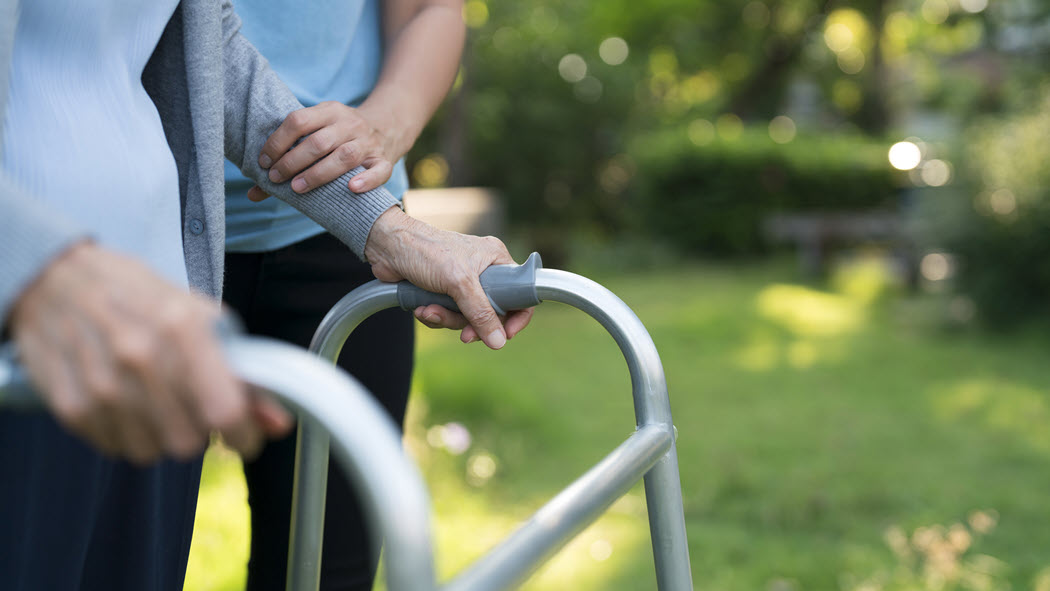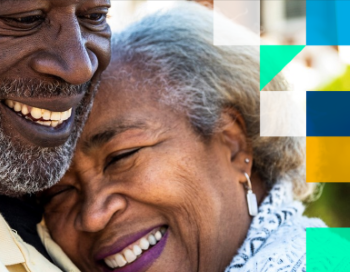
Millions of Americans work thousands of hours a year as informal or unpaid caregivers for friends or family who have health problems or disabilities. This job – and no mistake, it is a job – can be challenging and rewarding, exhausting and exhilarating, frightening and fulfilling.
The number of unpaid caregivers reached 53 million in 2020, representing more than 1 in 5 Americans, according to Caregiving in the U.S. 2020, a report from the National Alliance for Caregiving (NAC) and AARP. Their research, which is conducted roughly every five years, found that 61% of these caregivers also hold a paying job. The vast majority – 61% – are women, and 23% say caregiving has worsened their own health. These caregivers are “the backbone of long-term care provided in people’s homes,” the Centers for Disease Control and Prevention (CDC) says. Most are middle-aged or older, the CDC found, and they are caring for children, parents, and spouses. When asked about their health, 14.5% of caregivers said they had experienced poor mental health and 17.6% said their physical health was an issue.
According to recent research from Cigna Corporation, which surveyed more than 10,000 American adults, caregivers are more likely to feel depleted than non-caregivers (33% vs. 19%). Caregivers also reported greater isolation – 61% said they were lonely, compared to 50% of people who are not caregivers and 53% of the population at large. They named their two biggest challenges as taking care of themselves and managing the mental distress of caregiving.

Read the Report: The State of Vitality in the United States
We used the Evernorth Vitality Index to survey more than 10,000 adults across the U.S. – the largest study ever done on vitality and health.
Like virtually all employers, Cigna has numerous employees who serve as caregivers for loved ones. To support their unique needs, Cigna offers employees a caregivers coaching program at no cost, plus up to four weeks of paid caregiver leave annually. In 2023, the length of the caregiver leave will double, to up to eight weeks per year, at 100% pay.
“We’re enhancing our 2023 Caregiver Leave benefit because we don’t want our employees to feel they need to choose between their job and caring for their family member at their time of greatest need,” said Jill Vaslow, vice president, Talent Strategy & Employee Well-being. “We believe you should be able to maintain your job – and your pay – while taking care of a loved one. And we know that employees who took Caregiver Leave in 2020 or 2021 to care for a family member reported much lower stress levels when returning to work after their leave.”
Even when they have access to programs like Cigna’s, caregivers can struggle to take care of themselves. We asked Cigna employees to share how they balance caring for their loved ones with making time for themselves. Read on for their responses.
Meshea Bonner, Customer Service Supervisor at Cigna
 Self-care is Important. I always try to remember and go by the saying, "Put on Your Oxygen Mask First.” During pre-flight instructions, flight attendants tell passengers that in the case of an emergency, they should put their own oxygen mask on first even before helping children, because otherwise the passenger will run out of oxygen and be unable to help anyone else.
Self-care is Important. I always try to remember and go by the saying, "Put on Your Oxygen Mask First.” During pre-flight instructions, flight attendants tell passengers that in the case of an emergency, they should put their own oxygen mask on first even before helping children, because otherwise the passenger will run out of oxygen and be unable to help anyone else.
Latissa Brown, Provider Relations Lead Analyst at Cigna
 Once a week, take time to "release" yourself by doing something you like. This “me time” could be as simple as taking a walk, enjoying a relaxing bath, or going out to get your favorite meal.
Once a week, take time to "release" yourself by doing something you like. This “me time” could be as simple as taking a walk, enjoying a relaxing bath, or going out to get your favorite meal.
Marlena Carrasco, Customer Service Lead Representative at Cigna
 I was one of the primary caregivers for my grammy while she was on hospice for 16 months. During this time, I was also working with Cigna full-time. I was very fortunate to have an understanding and compassionate supervisor and colleagues.
I was one of the primary caregivers for my grammy while she was on hospice for 16 months. During this time, I was also working with Cigna full-time. I was very fortunate to have an understanding and compassionate supervisor and colleagues.
Being a caregiver to a loved one is one of the hardest jobs a person will ever have. Watching someone you love slowly decline takes a toll on your mental and physical well-being. Remember that ultimately, your mental and physical well-being come first and foremost. I found it helpful to take a few hours a day to myself, tagging in another caregiver, and taking a full day every couple of weeks.
Amber Gomes, Data Management Senior Advisor at Cigna

When two close family members were diagnosed with severe mental illness, my family found the National Alliance on Mental Illness (NAMI) invaluable for support, education, and just someone to talk to.
Andrea Maney, Technology Quality Assurance Senior Manager at Cigna

My daughter was diagnosed with a rare and complex autoimmune disease at 15 years old. I found it very helpful to join support groups through social media with others fighting the same disease, as well as other parents of children with the disease. Not only was the emotional support beneficial, but it was also very educational and provided information or questions that I could follow up on with my daughter's medical team.
LaWanda Miller, Information Protection Senior Advisor at Cigna

I took care of my mom for 16 years before she passed. Since the best way for me to take care of her was to have her move in with me, that is what we did. The hardest part of your parents living with you is you lose your sense of yourself as an adult.
Setting ground rules and reminding my mother of my boundaries were hard to get to and maintain. She even tried grounding me a few times – I kept those voice mails and can laugh now.
My short and sweet advice is you are an individual who needs to be recognized as such. Take time for you, do things you want, and know that you are doing the best you can. We put so much guilt on ourselves because we want to make it “better,” but that is subjective. Take a step back to recognize all you do every day.
Brandy Oliver, Program Management Manager at Cigna

Asking for help is the #1 thing you can do. For example, ask a friend, family, or neighbor to stay with a loved one while you do something outside of the house. Or ask that person to take your loved out of the house – maybe to lunch or for a drive – giving you time home alone. You may want to be with your loved one 24/7 because they "need" you and they don't want anyone else, but any time two individuals are together 24/7 indefinitely, they undoubtedly will become irritable with each other about silly things.
Finding a support group, a therapist, or both is instrumental to keeping your sanity and boundaries. Without a feedback loop, you can easily lose track of what's acceptable and what's not regarding the amount of effort and energy you are expending. You'll also gain new ideas, and your experiences may help others along the way.
And remember: It’s okay to feel a little bit guilty. It's not okay to feel a lot guilty. Take care of yourself.
Cindy Smith, Administrative Assistant at Evernorth

Get good tools. I stayed with my mother when she had her hip replacement. We are both hard of hearing, so I didn't wake right away when I was asleep and she needed help. I got her a wireless call bell/alert system for the home that made a huge difference. She still uses it, because my sister lives with her. This allows my mother to get my sister’s attention, no matter where she is in the home.
Levern Spicer, Clinical Quality Advisor at Cigna

I was the caregiver for my mom for over 15 years. In the early years of supporting her, I cared for my stepfather (her husband) until he passed away in 2011. In 2012, my sister was diagnosed with stage 4 cancer. I supported and cared for her until she passed away less than 10 months after her diagnosis. In 2018, my guy friend, who was a lung recipient, went into full rejection. I was his caregiver for the eight months before he passed away. During these years, my mom required more and more care as her dementia progressed. It was definitely not easy, and the last two years were intense. She passed in February.
What helped me the most was tapping into a licensed counselor (therapist) to support me emotionally and mentally. I am also grateful for the support of Cigna's caregiver coaching program. The coach helped me find options, suggested solutions, and provided resources in addition to being a supportive ear to listen to me voice my frustrations, cry, or empathize with me. My caregiver coach let me know that she was there for me. It meant the world.
I also suggest caregivers try to find something funny to laugh at every day. Humor really is good medicine for your soul. Lastly, don't isolate yourself. Stay connected to friends as much as possible, even if it's scheduling a time for you to check in virtually.
Glenys Wright, Customer Service Representative at Cigna

To my sure I take care of myself, I spend as much time as possible with my two grandkids. I also enjoy early morning road trips, serving my church, music or jazz in the park, mentoring students, hosting family events, and giving back and helping the less fortunate.
Cigna offers a wealth of information, resources, tips, and advice for caregivers. Learn more